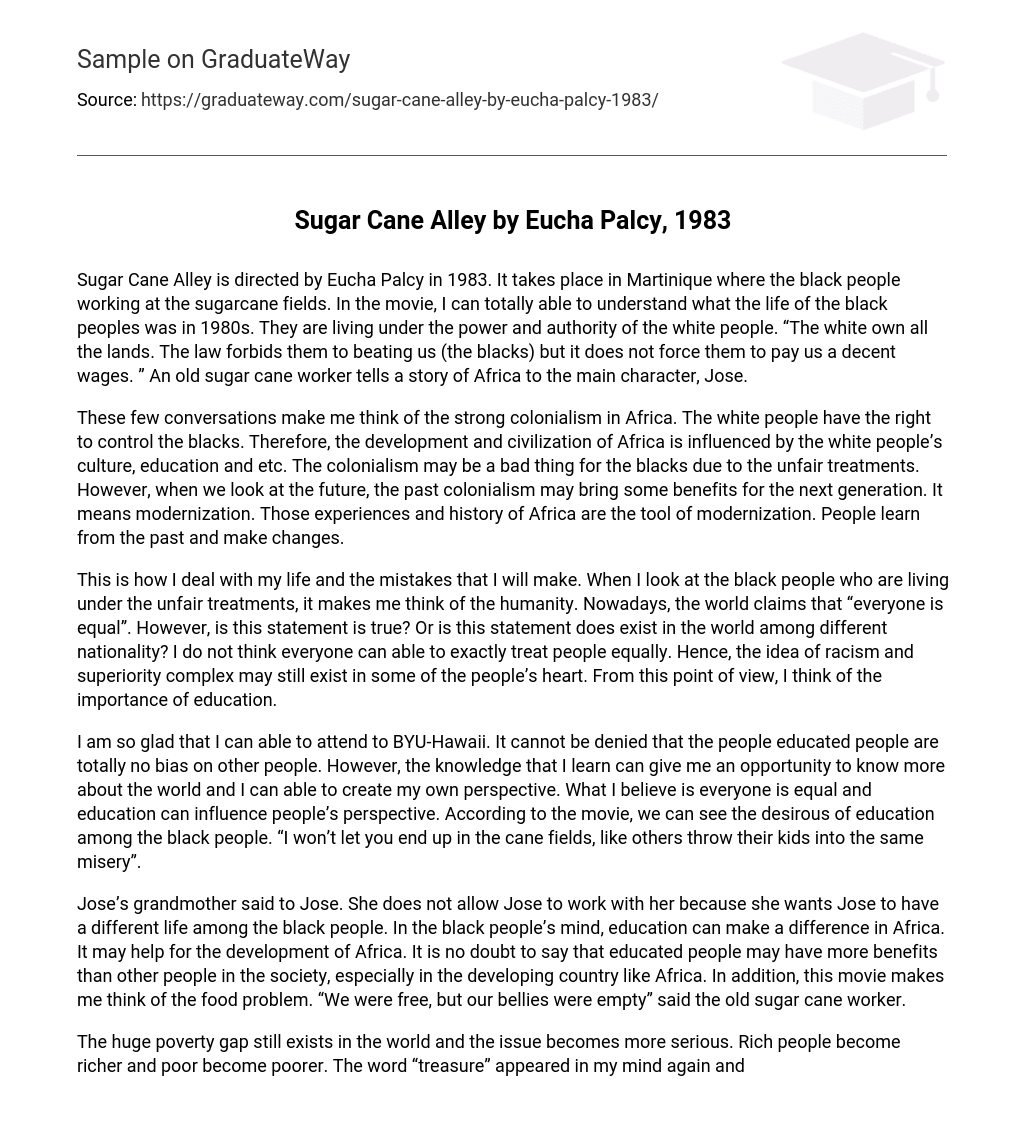Sugar Cane Alley, released in 1983 and directed by Eucha Palcy, takes place in Martinique and portrays the lives of black individuals employed in the sugarcane fields. The movie offers a deep understanding of the experiences endured by black people during the 1980s under the authority and power of white individuals. A particular character, an elderly sugarcane worker, emphasizes the unfair treatment suffered by the black community. According to this character, while physical abuse is prohibited by law, it fails to ensure equitable wages. Furthermore, this character shares an African tale with Jose, the film’s protagonist.
These few conversations bring to mind the widespread colonialism in Africa, where white people have historically exerted power over the black population. As a result, the development and progress of Africa have been significantly influenced by the cultural, educational, and other impacts of the white colonizers. Although colonialism may have subjected unfair treatment to the black community, looking back it is possible to recognize certain advantages it brought for future generations – particularly in terms of modernization. The experiences and historical heritage of Africa provide a valuable resource for embracing transformation and drawing lessons from history.
This is my approach to managing my life and the mistakes I make. When I witness unfair treatment towards black people, it serves as a reminder of our shared humanity. In contemporary society, there is a prevailing notion that “everyone is equal.” However, can we unequivocally assert the truth of this statement? Does it genuinely encompass individuals from diverse nationalities? I harbor uncertainties regarding whether everyone can genuinely exhibit fair treatment towards others. Consequently, instances of racism and feelings of superiority may persist in certain individuals. This underscores the significance of education when contemplating these matters.
Attending BYU-Hawaii fills me with gratitude. It is evident that educated individuals are unbiased towards others. Moreover, the knowledge I gain allows me to delve deeper into the world and form my own viewpoint. I firmly believe in equality for all, and education holds the ability to mold people’s perspectives. This sentiment is exemplified in a movie where we witness the fervent yearning for education among black individuals: “I will ensure you do not suffer in the cane fields like others throw their children into the same misery.”
Jose’s grandmother told him that she does not want him to work with her because she hopes he will have a better life among black people. In the minds of black people, education is seen as a potential catalyst for Africa’s development and progress. Without a doubt, educated individuals often have more advantages in society, particularly in developing countries like Africa. Furthermore, this film also makes me ponder the issue of food scarcity. An old sugar cane worker once said, “We had our freedom, but our stomachs remained empty.”
The world’s poverty gap remains significant and continues to worsen. The wealthy keep accumulating more wealth, while the less fortunate sink further into poverty. While watching a movie, I kept thinking about the concept of “treasure,” which reminded me to be grateful for my own blessings and help others. As mentioned before, it is vital to uphold equality for everyone, allowing each individual a chance at a better life. So why not offer aid to those in need? This way, we can promote stronger bonds among people and cultivate deeper connections within our global community.





